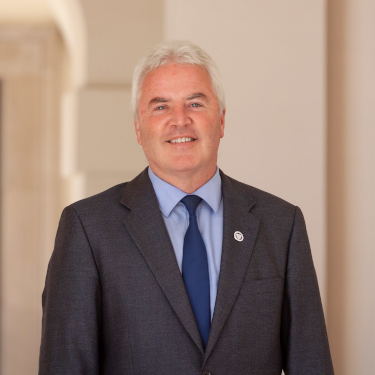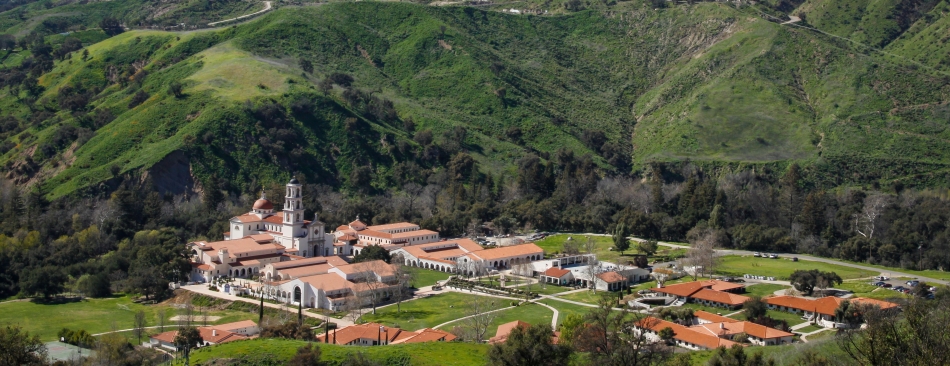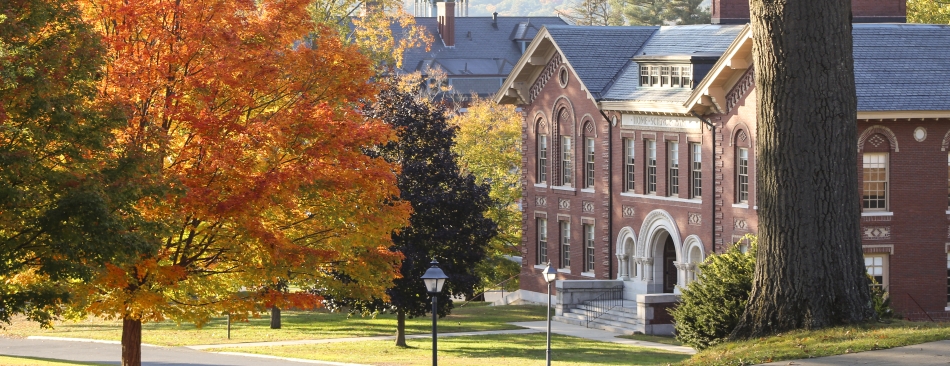
Introduction
First published in 1969, A Proposal for the Fulfillment of Catholic Liberal Education — also known as the “Blue Book” — has served as the founding and governing document of Thomas Aquinas College for more than 50 years. Its fruits are a testament to its prescience and its wisdom.
In the subsequent half century, the College has grown from little more than an idea, as outlined in these pages, to one of the preeminent institutions of Catholic higher learning in the United States, inspiring many other schools, colleges, and universities in the burgeoning movement to renew Catholic liberal education. Having long ago reached maximum capacity at its California campus, the College opened a second campus in New England in 2019. On both coasts, the College remains faithful to the vision of genuine Catholic liberal education outlined in the Blue Book, and, God willing, will do so as long as it continues to exist.
In a key passage, the Blue Book describes faith as a light “which illumines understanding and serves as an indispensable guide in the intellectual life,” bringing the student to truth about nature and nature’s creator. “Contrary to what is often assumed,” it continues, “liberal education does not take place in spite of or even apart from the Christian faith. Rather, the Christian student, because of his faith, can be liberally educated in the most perfect and complete way.”
Catholic liberal education is best characterized in the words of St. Anselm that serve as the Thomas Aquinas College’s motto, faith seeking understanding. Both the teacher and learner believe the fullness of the Christian message and desire to understand it more perfectly … to see, as much as is possible in this life, what is first believed.
At Thomas Aquinas College, we pursue such understanding under the guidance of our patron, St. Thomas Aquinas, as the Church has for centuries encouraged the faithful to do. The First Vatican Council elevated St. Thomas to the premier status of “teacher of the Church.” Pope Leo XIII said that St. Thomas’s theology was a “definitive exposition of the Christian faith.” And in Fides et Ratio, Pope St. John Paul II said, “the Church has been justified in consistently proposing St. Thomas as a master of thought and a model of the right way to pursue theology.”
St. Thomas is so important because his principles, methods, and chief doctrines — as well as those of Aristotle, on whom his work securely rests — are true in their own right, and his methods are sound. Taken together, his teaching and example provide a trustworthy path to understanding the Catholic faith, while allowing for a deeper appreciation of the life-giving mysteries revealed in Scripture, in the tradition of the Church, and in the world God has created.
Aiding them in this pursuit, students at Thomas Aquinas College also study the other principal disciplines: logic, mathematics, natural science, language, music, and literature. While themselves rich sources of knowledge, these interrelated disciplines are the means by which, as Hugh of St. Victor says, “the lively soul enters the secrets of philosophy.” They lead the attentive student on a comprehensive tour of reality, culminating in the philosophical and theological contemplation of God Himself. In this way, the College’s unified curriculum allows students to see with their own eyes the unity of all truth and the harmony between faith and reason.
The curriculum conducts this tour of reality by carefully examining the Great Books, rather than textbooks. These masterworks of our civilization teach us to address the questions we all must confront; they speak to our deepest yearnings, touch our most profound tribulations, and celebrate our greatest joys.
Finally, classes at the College involve lively conversation and serious engagement with the thoughts of others. The Discussion Method helps to form the intellectual and moral virtues, not only increasing students’ knowledge and love of God, but also fitting them for lives of service to Church, country, and community, regardless of what specific vocations or professions they pursue.
This proposal was first drafted in the spring of 1968 by the late Ronald P. McArthur and the late Marcus R. Berquist, and it was revised not long after with the help of the late John W. Neumayr. Dr. McArthur served as president of Thomas Aquinas College for its first 20 years, and then as a member of the College’s faculty alongside Mr. Berquist and Dr. Neumayr. The discussion of wonder as the proper motive for leading the intellectual life was contributed by Edmund Dolan, F.S.C., late professor of philosophy at St. Mary’s College of California.
As Thomas Aquinas College continues to attract students and faculty of exemplary character and noble aspirations to pursue its educational program on both coasts, we pray that God will continue to bless its efforts as He has so abundantly in the past.
Sincerely,

Paul J. O’Reilly , Ph.D.
President









